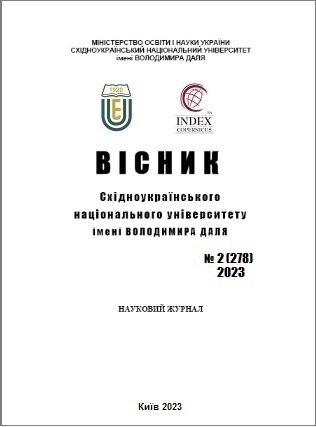The integration of digital technologies into the city infrastructure as a factor in the development of the social and economic security of the city
DOI:
https://doi.org/10.33216/1998-7927-2023-278-2-56-60Keywords:
socio-economic security of the city, city infrastructure, city development, smart city, digital technologiesAbstract
The article is devoted to the disclosure of features of socio-economic security of cities as an important condition for ensuring the developmen to the digital economy of Ukraine, determination of influencing factors on ensuring the cyber security of smart cities during the post-warre construction of Ukrainian cities. Theso-called "digitalage" has brough to neprofound key change to the global economy: digital infrastructure has become a key element of critical infrastructure. The growing dependence of almost every sector of the economy on the digital capabilities of one or another country dramatically affects the economic security as a whole and the socio-economic security of the city inparticular. The current state and prospects for the developmen to ffixed and mobile broad band networks in Ukraine, the growing capacities of post-war urban development create the necessary conditions for more intensive development, conceptualization and development of smart cities. It is very important to develop digital services to ensure the most efficientuse of the city's digital infrastructure. Governments can do this by requiring well-designed and well-planned environments and platforms that are based on internationally recognized systems and rules, ensuring interoperability, trust and cyber security in the initial design of information systems. The impact of digital transformation on city security is critical in the coming years, increasing the need for public support to develop digital skills, social and public services driven by the needs of the smart city security market. Directly, the smart city is a complex technological system in which the digital mind, with the help of a person, helps with the organization of transport, management of city utility services, and also manages security. Cyber security experts are convinced that solutions to ensure the security of smart cities can not be point-based. Rather, they should be part of a unified cybersecurity strategy that complements and support seach other. Of course, such planning includes the development of detailed regulations and instructions for Smart City services on what and how to do in the event of a cyberattack. There fore, to address the security challenges as sociated with smart city security, it is advisable to: design or configure a security system or product to streng then wire less ports, protocols, and encryption; develop training options for certified security specialists who have the ability to protect the smar tcity from external threats; identify and evaluate existing security products on the market that can be adapted to the security needs of a smart city.
References
1. Бойко А. В. Стійкість національної економіки: теорія, методологія, практика. Київ : Ін-т екон. та прогнозув. НАН України, 2014. 288 с.
2. Павловський М.А. Стратегія розвитку суспільства: Україна і світ (економіка, політологія, соціологія) Київ: "Техніка", 2001. 312 с.
3. AGT. URL : http://www.cisco.com/c/dam/en_us/solutions/industries/docs/agt-cisco-city_safetyaag.pdf
4. Brasuell J. PlanetizenI. URL : http://www.planetizen.com/node/78847
5. Cerrudo C. Hacking Smart Cities. RSA Conference Cyber Security Guidelines for Smart. 2015.Pp. 2 – 18.
6. Edwards L. Privacy, Security and Data Protection in Smart Cities: a critical EU Law Perspective. CREATe Working paper,2015. 39 p.
7. Elmaghraby S., Losavio M. Cyber security challenges in Smart Cities: Safety, security and privacy. Journal of Advanced Research. 2014. Volume 5, Issue 4. Pp. 491–497.
8. Ji Y.B., Dou Y.D. Coordinated development of new urbanization and transportation infrastructure.Acad. Exch.2016. № 7. Рр. 127–132.
9. Naphade M., Banavar G., Harrison C., Paraszczak J., Morris R. Smarter cities and their innovation challenges.Computer (Long. Beach. Calif).2011. Vol. 44, no. 6.Pp. 32-39.
10. Sen M., Dutt A., Agarwal S., Nath A. Issues of privacy and security in the role of software in smart cities. International Conference on Communication Systems and Network Technologies, 2013. Pp. 518-523.
11. Zhao R.D., Fang C.L., Liu H.M. Progress and prospect of urban resilience research.Prog. Geogr.2020. № 39. Рр. 1717–1731.
12. Xie C.Y., Wang M.H. A Study on the Impact of Transportation Infrastructure on the Spatial Distribution of Industrial Activities.Manag. World. 2020. № 36. Рр. 52–64.

